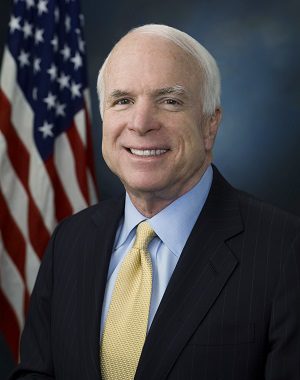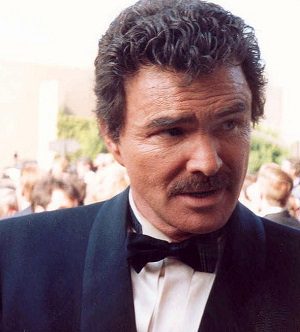
United States Senator John McCain passed away on Saturday, August 25, 2018, from an aggressive form of brain cancer known as glioblastoma. He was 81 years old.
McCain was diagnosed with brain cancer in July 2017. Doctors discovered malignant tumor when McCain underwent a procedure to have a blood clot removed from above his left eye. He appeared to remain in good spirits following the diagnosis and quipped that he would be returning to Washington for the Senate’s health care debate mere days after his surgery. “Unfortunately for my sparring partners in Congress,” McCain tweeted, “I’ll be back soon, so stand-by!”
Dedication to his role and position was nothing new for McCain. Born in 1936 in the Panama Canal Zone, McCain followed in his father’s footsteps and joined the United States Navy following his graduation from the Naval Academy in 1958. He was then stationed in Vietnam. In 1967, his A4 Skyhawk was shot down over Hanoi, and McCain was captured by the North Vietnamese. He was beaten, tortured and kept in solitary confinement for more than five years. Despite this, he refused to accept his captors’ offer of an early release. Instead, McCain insisted he would not leave before the other prisoners. He was eventually released in 1973, but the injuries resulting from his imprisonment were visible for the rest of his life. The most noticeable of these injuries was his restricted movement in his arms.
Three short years after his return to the United States, McCain began serving as the Navy’s liaison to the Senate. In 1982, he was elected to the House of Representatives, and he joined the Senate in 1986 after winning the race to replace Senator Barry Goldwater of Arizona. In 2000, McCain set his eyes on serving in the nation’s highest office. He won the New Hampshire primary but lost the presidential nomination to George W. Bush. In 2008, McCain once again aimed for the presidency. This time, he defeated a host of Republican candidates and became the official presidential nominee. He introduced Sarah Palin, then the governor of Alaska, to national audiences when he tapped her as his running mate, but the McCain-Palin ticket was defeated in the general election.
Following the end of his presidential ambitions, McCain returned to the Senate as the chairman of the Senate Armed Forces Committee. He continued to serve the nation until the very end. Arizona Doug Ducey has refused to announce who he will appoint to fill in McCain’s now empty seat until after the late senator’s burial as a sign of respect for McCain and his family. Newspapers across the nation placed tributes to McCain on their front pages, and the flags at the White House flew at half-mast in recognition of his death. The decisions that led McCain to be known as a “maverick” senator endeared him to some and infuriated others, but in a nation that recently has been so determined to focus on divisions, it is good to see that Americans on both sides of the aisle are capable of putting aside their differences to mourn a man so many respected.


